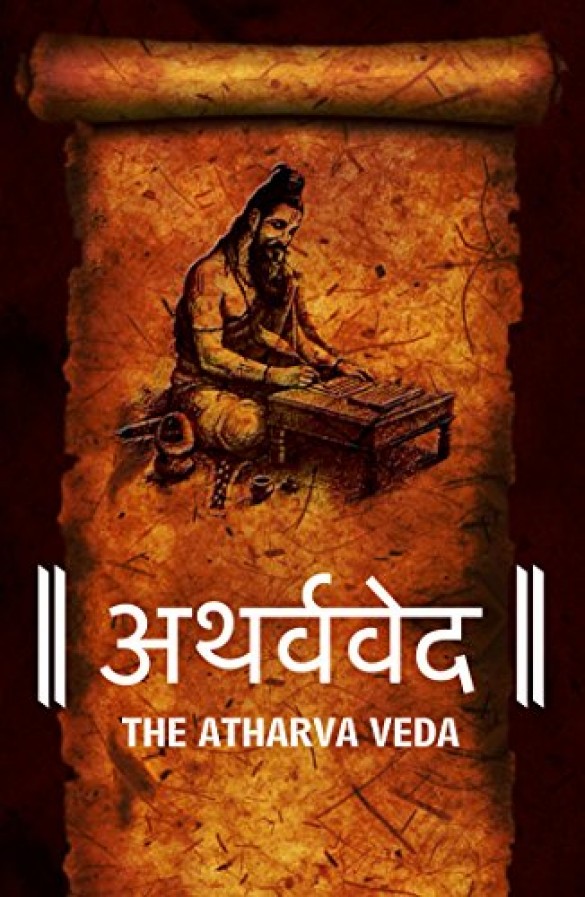
The Atharva Veda is one of the four sacred texts of ancient Indian scriptures known as the Vedas. Composed in the later Vedic period, the Atharva Veda stands out from its counterparts, the Rig Veda, Sama Veda, and Yajur Veda, due to its unique content and diverse subject matter. It contains a treasure trove of hymns, spells, charms, and incantations, making it a valuable source of knowledge on various aspects of life, spirituality, healing, and protection. The Atharva Veda stands as a testament to the profound wisdom and rich cultural heritage of ancient India. With its focus on healing, protection, and various aspects of human life, it offers a holistic approach to understanding and navigating the complexities of existence. As an integral part of the Vedic tradition, the Atharva Veda continues to be revered for its spiritual insights, therapeutic knowledge, and its contribution to the tapestry of Indian spirituality and philosophy.
The Atharva Veda is believed to have been composed between 1200 BCE and 1000 BCE, making it one of the youngest Vedas. Its name is derived from the Rishi Atharvan, to whom the hymns are attributed. The Atharva Veda, like the other Vedas, was initially transmitted orally through generations of sages and priests. Eventually, it was written down, preserving the ancient wisdom for posterity. The Atharva Veda is divided into 20 books, comprising a total of 730 hymns, which are further organized into various sections. Unlike the Rig Veda, which mainly consists of hymns to gods and natural forces, the Atharva Veda has a broader focus, delving into aspects of daily life and the human experience. Some of the primary themes covered in the Atharva Veda include:
Healing and Medicine: A significant portion of the Atharva Veda deals with medicinal plants, healing practices, and remedies for various ailments. The hymns invoke natural forces and deities for the well-being and health of individuals.
Protection and Charms: The Veda contains charms and spells to ward off evil spirits, diseases, and negative energies. It is also replete with incantations for blessings, success, and prosperity.
Rituals and Ceremonies: The Atharva Veda provides guidance on various rituals, ceremonies, and sacrifices, shedding light on the religious practices of ancient India.
Social and Ethical Values: Several hymns emphasize the importance of ethical conduct, family values, and social harmony, reflecting the moral and ethical framework of the time.
Cosmology and Spirituality: The Atharva Veda touches upon cosmological concepts, the nature of the universe, and the existence of the soul.
Despite being the lesser-known Veda, the Atharva Veda holds great significance in Indian culture and spirituality. Its inclusion in the Vedic canon reflects the recognition of the diverse dimensions of human life and the acknowledgment of the importance of healing and protection in daily affairs. Many of the practices and concepts mentioned in the Atharva Veda have influenced the development of Ayurveda (traditional Indian medicine) and the Atharva Veda-Upanishads, which explore deeper philosophical and spiritual aspects. Moreover, the Veda's teachings continue to resonate with individuals seeking spiritual guidance, healing, and protection in contemporary times. Various hymns and mantras from the Atharva Veda are still recited and chanted during rituals and ceremonies, symbolizing the timeless nature of its wisdom and its relevance in modern Hindu practices.
also read – Kal Bhairav: Powerful Guardian and Protector
Farizon to Amplify its Electrification out of China after Capitalizing enough
China’s Zhipu AI to get capitalized to Dominate the Competitors